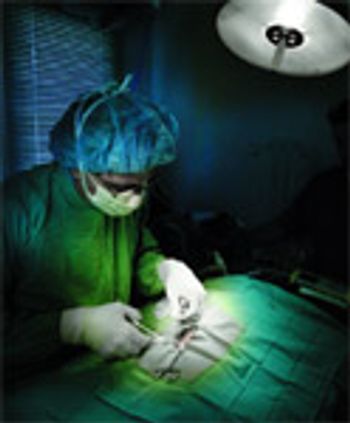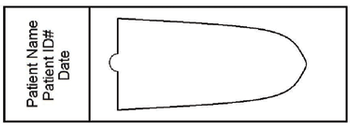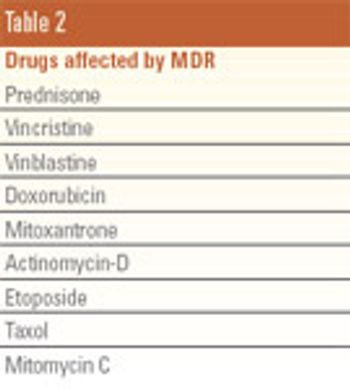
Schaumburg, Ill. - 9/14/07 - Multiple brands of jerky treats manufactured in China have been making pets sick, reports the American Veterinary Medical Association. No deaths have been reported, but symptoms include vomiting, diarrhea and lethargy.

Schaumburg, Ill. - 9/14/07 - Multiple brands of jerky treats manufactured in China have been making pets sick, reports the American Veterinary Medical Association. No deaths have been reported, but symptoms include vomiting, diarrhea and lethargy.

Atlanta - 9/7/07 - The first-ever World Rabies Day - an international effort to raise awareness about the risks of rabies - kicks off tomorrow, Sept. 8. The event aims to heighten understanding of the impact of human and animal rabies, while encouraging prevention to help avoid more than 55,000 rabies-related deaths that are estimated to occur each year.

Schaumburg, Ill. - 9/4/07 - "Being a Pet is Risky Business" campaign, sponsored by the American Veterinary Medical Association, aims to raise awareness about common pet disease risks and how to protect against them.

Portland, Ore. - Long-time industry executive John Payne became the new president of the 635-hospital corporate practice, while founder Dr. Scott Campbell remains as chairman of the company.

Portland, Ore. - More than 140 leaders, representing many of the diverse disciplines in the veterinary market, hope to address the perceived and growing shortage of veterinarians in the United States.

Atlanta, Ga. - World Rabies Day, originally designated for Sept. 8 by the Centers for Disease Control and Prevention (CDC), will be extended through several weeks to include global events with the shared goal of raising international awareness, education and disease prevention.

Duluth, Ga. - Merial turned 10 on Aug. 1.

The breed most associated with serious dog bites changes with its popularity.

Schaumburg Ill. - With the 10-year anniversary of the American Veterinary Medical Association's 2000 euthanasia guidelines fast approaching, the group's Animal Welfare Committee (AWC) prepares to review the document for relevancy and possible changes.

Some responses were strident, others more straightforward - and a few pushed the decibel meter to the max.

Bismarck, N.D. - Outreach to veterinary groups and expansion of its testing services top the National Board of Veterinary Medical Examiners' (NBVME) agenda for 2007 and beyond.

Washington - Human and veterinary medicine have partnered in a collaboration to strengthen disease prevention and control, education and research initiatives for the benefit of all species.

Columbus, Ohio - A veterinarian who is also a state lawmaker plans to offer an amendment to pending animal-protection legislation that would take pets away from abusive owners.

Denver, Colo. - DVMs can send condolences to clients who have lost pets and at the same time support veterinary research through a new memorial-card service offered by Morris Animal Foundation (MAF).

Washington - 8/21/2007 - The American Kennel Club (AKC) filed a request with the Federal Election Commission (FEC) to form a political action committee focused on canine legislative issues.

Dr. Pinson, a veterinary pathologist and part-time piano tuner, gives you an inside look at the art of piano tuning and what attracted him to the trade.

Armonk, N.Y. - 8/17/2007 - BrightHeart Veterinary Centers has signed on as a supporting sponsor for The Tower of Hope, a charity foundation that aids people who suffer from disabilities, abusive relationships or chronic illnesses through the use and assistance of pets.

Washington - 8/15/2007 - Researchers may have developed a vaccine to protect people from an influenza pandemic even before it strikes.

Ithaca, N.Y. - 8/8/2007 - A team of Cornell University scientists from the College of Veterinary Medicine, Weill Cornell Medical College and the College of Agriculture and Life Sciences discovered that a novel group of E. coli bacteria is associated with intestinal inflammation in patients with Crohn's disease, the university reports. Their findings were published in The ISME Journal: Multidisciplinary Journal of Microbial Ecology.

London - 8/6/07 - Along with a growing list of countries, the European Union blocked British beef exports amid a foot-and-mouth disease outbreak. British public health officials vowed its response has been swift as they seek to contain the outbreak.

A California bill requiring the sterilization of dogs and cats stirred up a hornet?s next of opposition, leaving its chief sponsor to come up with a less-divisive measure next year. Some 20,000 people protested to lawmakers, and the embattled California Veterinary Medical Association, an early co-sponsor, backed away after fielding thousands of complaints.

Fort Collins, Colo. - There may be a link between an increase in emergency-room visits for dogs and cats and lunar-cycle days when the moon is near or at its fullest, according to a study by colleagues at Colorado State University's College of Veterinary Medicine and Biomedical Sciences.

There is an old Italian proverb that says, "Your plate is always full of what you don't want."

If Disney Ran Your Hospital: 9½ Things You Would Do Differently by Fred Lee

Hypercalcemia is defined as a serum or plasma total calcium level exceeding the normal level. Reference ranges vary considerably among laboratories however a serum calcium concentration > 12mg/dl is considered to be a clinically important elevation and a repeated calcium elevation warrants clinical investigation. Routine calcium levels reported on chemistry profiles are Total calcium, of which 50% is ionized (the metabolically active form) , 40% is protein bound (to albumin) and 10% calcium complexes. In the dog serum calcium concentration is adjusted for albumin level by subtracting the albumin level from the total Ca++ level and adding 3.5.;this yields a corrected calcium level in mg/dl. This method is not accurate in cats. Recently, (2005) it has been suggested that ionized calcium must be measured directly in order to obtain the most accurate level and prevent misdiagnosis of disease especially in dogs with chronic renal failure.

There are many different causes of skin defects in both cats and dogs. Traumatic wounds such as degloving injuries, dog or cat bites, burns, deep fungal infections, and extensive wounds caused by surgical removal of neoplastic disease are examples of clinical situations where reconstructive surgical techniques may be necessary.

An acute abdomen is defined as the acute onset of abdominal pain. Possible underlying etiologies are broad ranging, and include the gamut from trauma to infectious and neoplastic causes.

If Disney Ran Your Hospital: 91/2 Things You Would Do Differently by Fred Lee

Because antidotes are rare, plant-induced diseases in horses can be irreversible and sometimes lethal.

Employing different alkylating agents is seen in the design of rescue protocols for lymphoma dogs. oneeded